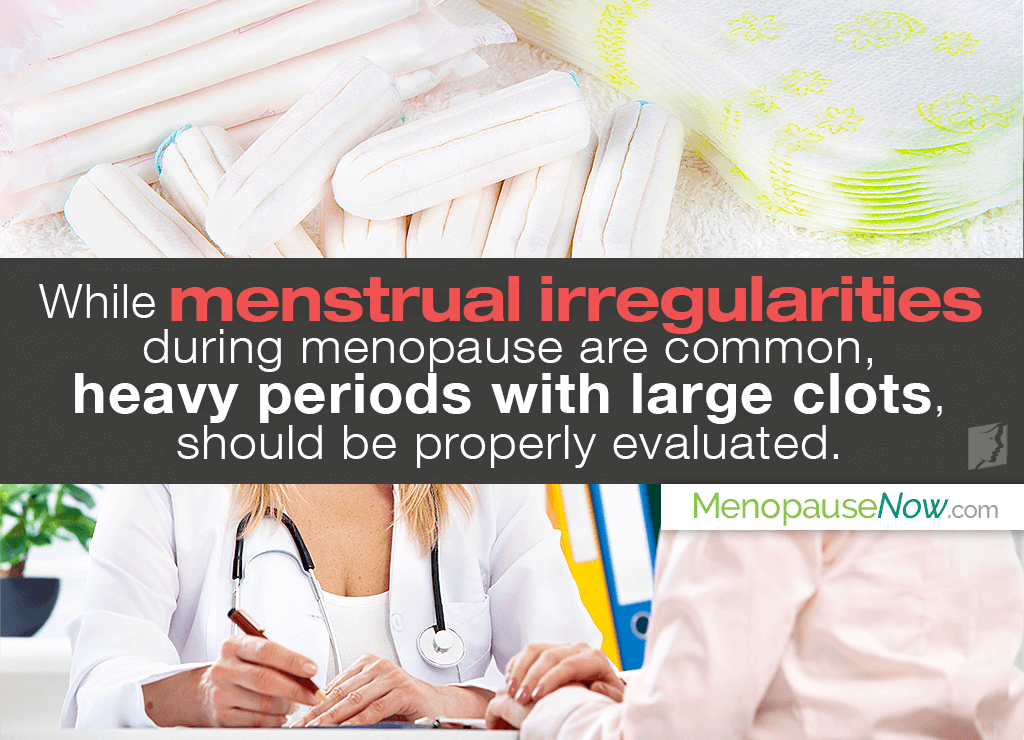Women approaching menopause often notice increasing irregularities in menstrual cycles, such as abnormal period clots. While this can be unexpected or confusing, it is generally not a need for alarm. Continue reading to learn what you need to know about abnormal period blood clots, and have your reproductive health worries laid to rest.
About Menstrual Clots
Menstrual clots, or blood clots, are a mix of blood and tissue released from the uterus during a period. They are characterized by jelly-like globules, appearing as blood that is unusually thick. If occurring during menses, it is often during the heaviest days.
Women can consider clotting as the body's way of protecting itself as they help prevent too much blood from leaving the body.
Having Clots Is Not a Concern, Unless They Are Large
The size matters more than the color of a blood clot, which can be bright or deep red. Heavy, irregular periods with large clots that are bigger than a quarter should be brought to the attention of a doctor, especially if a woman is soaking a pad every hour for several hours on end.1
And Happen Alongside Irregular Periods
Most menstrual cycles last between 21 to 35 days, with the average cycle lasting 28 days. Because each woman's menstrual cycle is unique to her, what is considered “normal” will vary from woman to woman.
Irregular periods have widely been accepted as those who fit the following criteria: occur more or less frequently than every 21 or 35 days; heavier or lighter menstrual flows; bleeding lasting longer than seven days; spotting in between periods; or periods are accompanied by pain, nausea, vomiting, or cramping.
Women who suffer from irregular bleeding with clots larger than a quarter could have a condition called menorrhagia, the medical term for periods with unusually heavy bleeding.
Monitor Other Symptoms to Verify
Women who suspect menorrhagia may also suffer from other abnormalities, aside from unusual period clots, including:
- Soaking through a pad or tampon every hour for several hours
- Symptoms of anemia, like fatigue and tiredness
- Limiting daily activities because of heavy flow
- Waking up during the night to change sanitary protection
- Using double protection to catch all the blood
- Period lasting longer than a week
Having any of these symptoms necessitates seeking medical help promptly before further complications arise.
Remember That Help is Near
Women who are experiencing irregular heavy periods with clots - with other concerning symptoms - should see their doctors. Effective treatment will only be found once the underlying cause is pinpointed. For women who can credit their heavy irregular bleeding with clots to menopause, partaking in non-risky irregular periods treatments that focus on lifestyle changes alongside the use of alternative medicine may do wonders. Either way, women should rest assured that help is within reach!
Sources
- Centers for Disease Control and Prevention. (2017). Heavy Menstrual Bleeding. Retrieved October 23, 2019, from https://www.cdc.gov/ncbddd/blooddisorders/women/menorrhagia.html
- Cleveland Clinic. (2019). Abnormal Menstruation (Periods). Retrieved October 23, 2019, from https://my.clevelandclinic.org/health/diseases/14633-abnormal-menstruation-periods
- Mayo Clinic. (2017). Menorrhagia (heavy menstrual bleeding): Symptoms & causes | Blood clots during menstruation: A concern? Retrieved October 23, 2019, from https://www.mayoclinic.org/diseases-conditions/menorrhagia/symptoms-causes/syc-20352829 | https://www.mayoclinic.org/diseases-conditions/menorrhagia/expert-answers/blood-clots-during-menstruation/faq-20058401
Footnotes:
- Cleveland Clinic. (2018). Menstrual Clots During Heavy Periods: What's Normal & What's Not? Retrieved October 23, 2019, from https://health.clevelandclinic.org/menstrual-clots-during-heavy-periods-whats-normal-whats-not/




